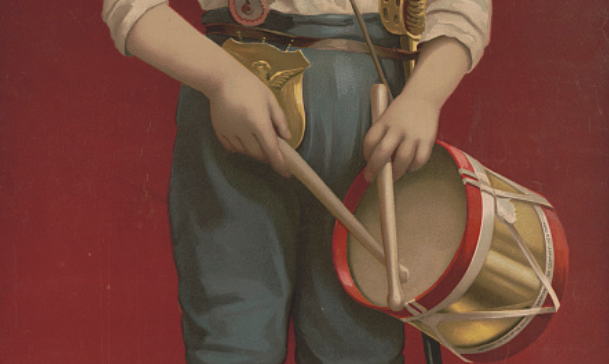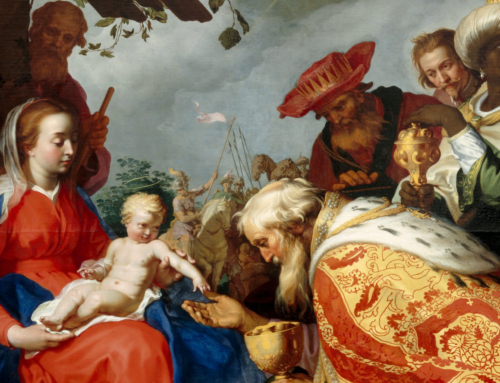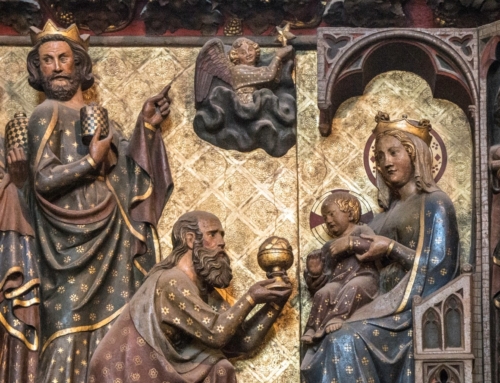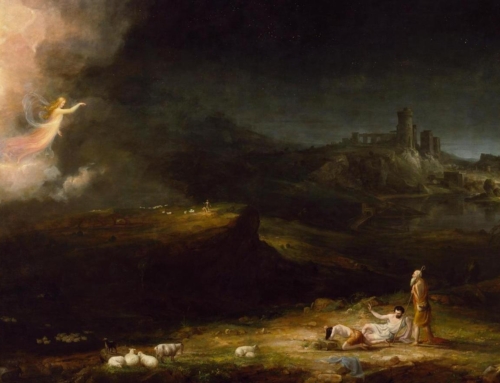The Sights and Sounds of Christmas:
The Little Drummer Boy, 1968 Movie
Silly Putty, Strat-O-Matic Baseball, Pop Rocks, Hogan’s Heroes, and Speed Racer all cause a sense of nostalgia for me.
During my upbringing, my father’s childhood favorites tended to become my own. But these pale in comparison to my childhood love of made-for-TV, stop-animation Christmas movies: Santa Claus Is Comin’ to Town (1970), The Year Without a Santa Claus (1974), Rudolph the Red-Nosed Reindeer (1964), and The Little Drummer Boy (1968).
I especially loved the last of these movies, which was about a boy traveling to Bethlehem with three wise kings to greet a newborn king. In the final scene of The Little Drummer Boy, the protagonist, Aaron, finds his best friend, a little lamb, to be near death. In an attempt to revive his friend, Aaron appeals to the highest and most powerful authority he knows, one of the three kings. The king answers by telling of the power wielded by the newborn king: he, a mere mortal king, can do nothing—only this babe has power over life and death. It is then that the protagonist approaches what we recognize as the manger scene: Joseph, Mary, and their newborn son. Aaron sings for them, while he plays his drum.
Come they told me, pa-rum-pa-pum-pum
A newborn king to see, pa-rum-pa-pum-pum
How many times have we been told to come and see this king? Perhaps it was a grandmother or a friend. Surely countless times in our lives, we have been invited, by the words of others and by the silent thoughts of our own hearts, to come and see Jesus, the newborn king.
Our finest gifts we bring, pa-rum-pa-pum-pum
To lay before the king, pa-rum-pa-pum-pum
So, to honor Him, pa-rum-pa-pum-pum
When we come
When people do invite us to come and meet this Jesus, we instinctively understand what’s at stake: If this little babe is truly the kind of king he is said to be—the king of kings whose reign will have no end (Lk 1:33)—then he deserves our very best. Only the finest gifts are worthy of this little king.
Baby Jesu, pa-rum-pa-pum-pum
I am a poor boy too, pa-rum-pa-pum-pum
I have no gifts to bring, pa-rum-pa-pum-pum
That’s fit to give a king, pa-rum-pa-pum-pum
At this point, many of us would likely have second thoughts about trying to go and meet this king. Compared to the “finest gifts” that some people offer to Jesus, I’m really just a poor beggar—I have no real gifts to bring! I probably speak for many when I admit that much of my life has not been spent “honoring Him” as he ought to be. I have nothing “fit to give a king.” It would be embarrassing to arrive without a proper gift.
Rum-pa-pum-pum
Shall I play for you, pa-rum-pa-pum-pum
On my drum?
In the film, the only true possession of the little boy is his drum. A spiritual understanding is sure to aid us here.
One Latin verb used for something like “playing on a drum” is pulsare. That very same verb is also at the root of how we describe the beating of the human heart—our English word, “pulse,” derives from pulsare. Thus, the boy does not so much offer his drum to the little king as he does his very heart—the only true possession of a “poor boy” with no “gifts to bring.” What value can be assigned to giving your heart away to someone?
Mary nodded, pa-rum-pa-pum-pum
I played my drum for Him, pa-rum-pa-pum-pum
I played my best for Him, pa-rum-pa-pum-pum
In our poverty of spirit, we truly have nothing, and yet we are still able to give a gift of inestimable value—our hearts, our love. Such a paradox reveals the wisdom of the all-powerful God who became a little baby nestled in his mother’s arms. The example of Christ emboldens us to imitate the childlike humility of God: “Unless you become like children, you will never enter the kingdom of heaven. Whoever humbles himself like this child, he is the greatest in the kingdom of heaven” (Mt 18:3-4). By humility, we recognize our poverty. By trust, our poverty unites us to the little baby king, the greatest treasure—truly greater than any “gift fit for a king.” By love, that little king comes to reign in our hearts. If we but give our hearts to the newborn king, we will truly see the face of God smiling (Mt 5:8), as did Aaron when he approached the manger with his drum.
Then, He smiled at me, pa-rum-pa-pum-pum
Me and my drum.
✠
Image: Nineteenth Century Print Drawing, Christmas Morning







